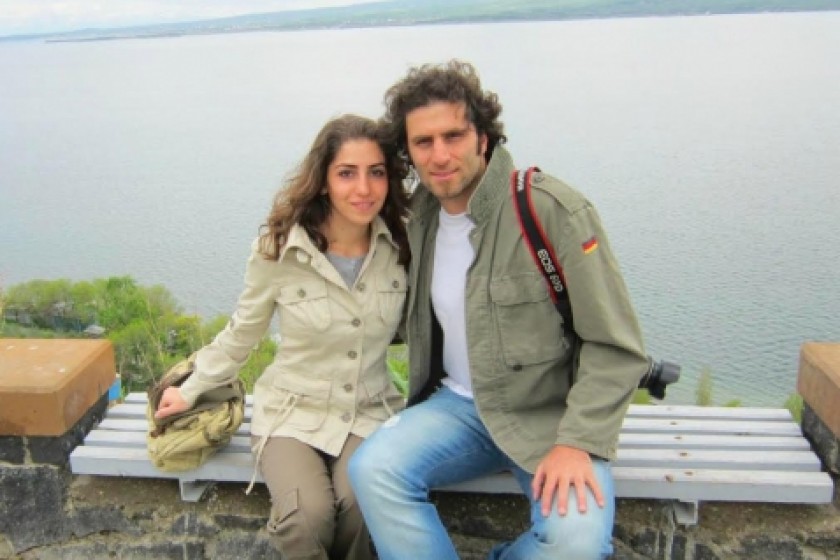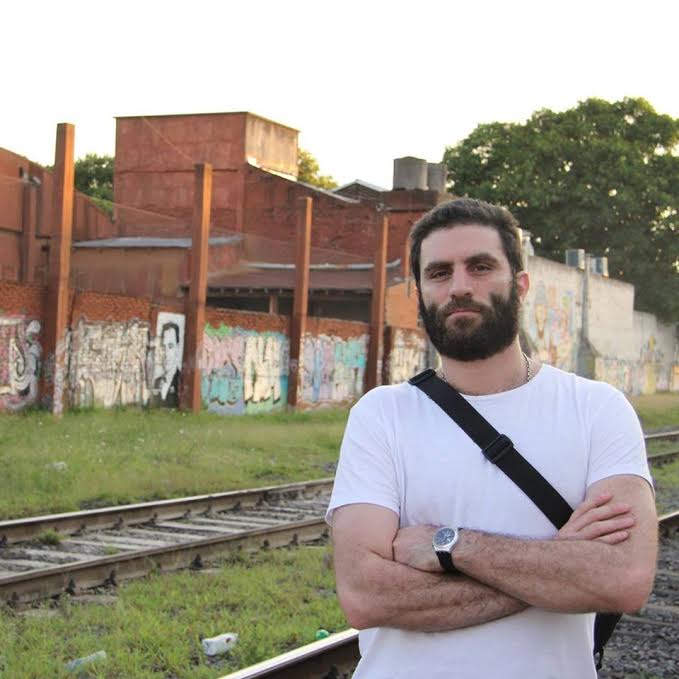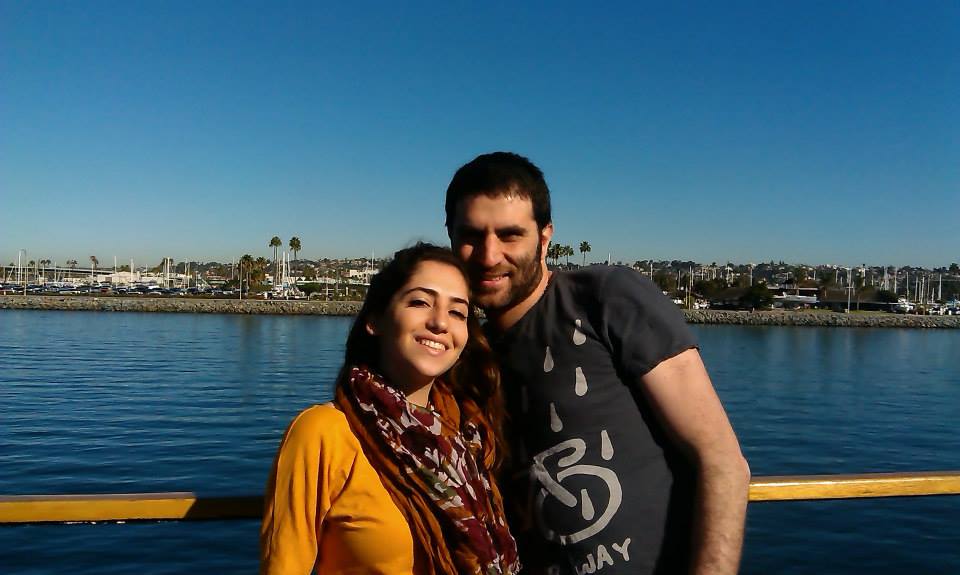
Ari Hajian from Argentina: Armenia’s Future President
“It’s unacceptable to have so many ignorant, uneducated people in our leadership”
Ari Hajian moved to Armenia from Argentina in 2010. His childhood dream of living in Armenia has now been realized.
When he was still young in Argentina, it was an accepted practice to have pen pals based in other countries. When he was 12 years old he sent a letter to someone in Armenia that read he wanted to go to there one day to play on the Armenian soccer team and become the president of Armenia.
Ari is an architect by profession and works at Zvartnots International Airport. When he was still living in Buenos Aires, the company he used to work for was contracted to build apartment buildings in Zambia. Although he was willing to go there, he later changed his mind because Armenia was the only country where he wanted to live. Ari was able to find work in his field and settle in Armenia.
While in Armenia he married fellow architect Nayri Abrahamyan, who is from Iran. She moved to Armenia in 2002 to receive her higher education in Yerevan. Nayri’s father said that she would feel better about his daughter moving to Armenia alone rather than moving from one part of town to another in Iran. Her mother and father followed two years after Nayri moved to Armenia. Her father comes and goes to Iran regularly for work-related reasons.
 “A lot of people who come to Armenia become disappointed and go back, but there were reasons why we decided to stay here,” Nayri said. “We stayed after seeing both the good and the bad. It isn’t good for people to play up Armenia by glorifying and idealizing it from a distance. Then they come here, they see the bad side of things, their expectations aren’t met and they leave.”
“A lot of people who come to Armenia become disappointed and go back, but there were reasons why we decided to stay here,” Nayri said. “We stayed after seeing both the good and the bad. It isn’t good for people to play up Armenia by glorifying and idealizing it from a distance. Then they come here, they see the bad side of things, their expectations aren’t met and they leave.”
Nayri confessed that although she lived in Iran for 17 years, she didn’t have trouble adjusting to life in Armenia from the get-go. It was as if she had lived here her whole life. She especially liked the freedom she felt, since Iran is a closed society where “it’s difficult for women.”
Ari admitted that his ideas of patriotism changed after moving to Armenia. For Armenians in the diaspora, Armenia seems like heaven, or else they regard the country negatively or not at all. For some, “longing justifies everything,” he said.
 “My patriotism was all about demanding our lands—Karabakh, Nakhichevan and Javakhk,” he said.“Now I believe we have to change our government so these people find work and become stronger. A pensioner shouldn’t be receiving 12,000 dram, it’s disgraceful. Then some parliamentarian who drives a $150,000 car says there’s no budget. How many pensioners would he help by selling his car? We have a serious emigration problem and they could care less.”
“My patriotism was all about demanding our lands—Karabakh, Nakhichevan and Javakhk,” he said.“Now I believe we have to change our government so these people find work and become stronger. A pensioner shouldn’t be receiving 12,000 dram, it’s disgraceful. Then some parliamentarian who drives a $150,000 car says there’s no budget. How many pensioners would he help by selling his car? We have a serious emigration problem and they could care less.”
Ari admires people who have chosen to learn foreign languages and are able to receive a high-quality education abroad. They are the ones who need to return and enact change, but many are disenchanted because they encounter corruption and injustice.
“I teach at TUMO, and I am so happy to see the kids there, who are geniuses, go abroad to learn,” Ari said. “But my heart breaks when they stay put. I know thousands of cases like that.”
Ari and Nayri are annoyed that most of their friends have left the country in recent years and live in a tiny circle.
“Now I start to wonder whether I was wrong to come to Armenia and leave so much behind in Argentina,” she said. “What business do I—a foreigner—have being here while people are leaving? Although Armenia is a huge family and I feel like a member of it, I’m still a foreigner.”
Ari’s family continues to live in Argentina. Although he misses them, he says his decision’s been made. Both Ari and Nayri admit that they are very attached to the country and people and they want to continue living here. They also want to start their own business by opening a design studio. But they don’t want to see people continuing to leave the country.
“It’s unacceptable to have so many ignorant, uneducated people in our leadership,” Ari said. “Our nation, which is one of the smartest, should have the most educated parliamentarians and ministers. I don’t get why we don’t. But I have a lot of hope, especially in the new generation, which is very smart, stylish and mature. We have the brains and the talent, but we still have this Soviet mentality. They say there’s corruption all over the world, and if you’re going to justify the country’s circumstances with that, then nothing will change. The mentality has to change.”

Ari is frustrated with the government officials and oligarchs, but he admires ordinary people. For instance, he loves to be around laborers that have high values and keep on smiling and engaging, despite the multiple problems they have.
“Although I’ve been here for five years, I’m always delighted to see two people walking down the street speaking Armenian to each other, I go crazy!” he said. “That closeness I have to the Armenian language, which doesn’t exist in Argentina, still holds true, to hear Armenian words and conversation. But I hate it when they mix in Russian.”
Ari has found a way to deal with people who use Russian in conversation a lot of the time. In his office there’s a glass container in which people have to deposit 10 dram every time they utter a Russian word. After that people became more conscious about using foreign words while speaking.
“I’m staying because I have hope that change will come, that more Armenians from the diaspora will come here and that our mentality will be brought along with them,” Ari said.
 Videos
Videos Photos
Photos
Comments (3)
Write a comment